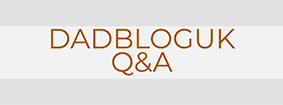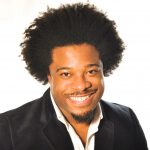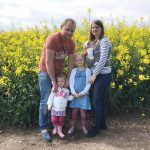Silence is Not an Option. This is the title of Stuart Lawrence’s first book for young people. It’s a motivational book to help them navigate the world. it encourages young people to think big, learn from their mistakes and make the world a better place while being happy in themselves and their achievements.
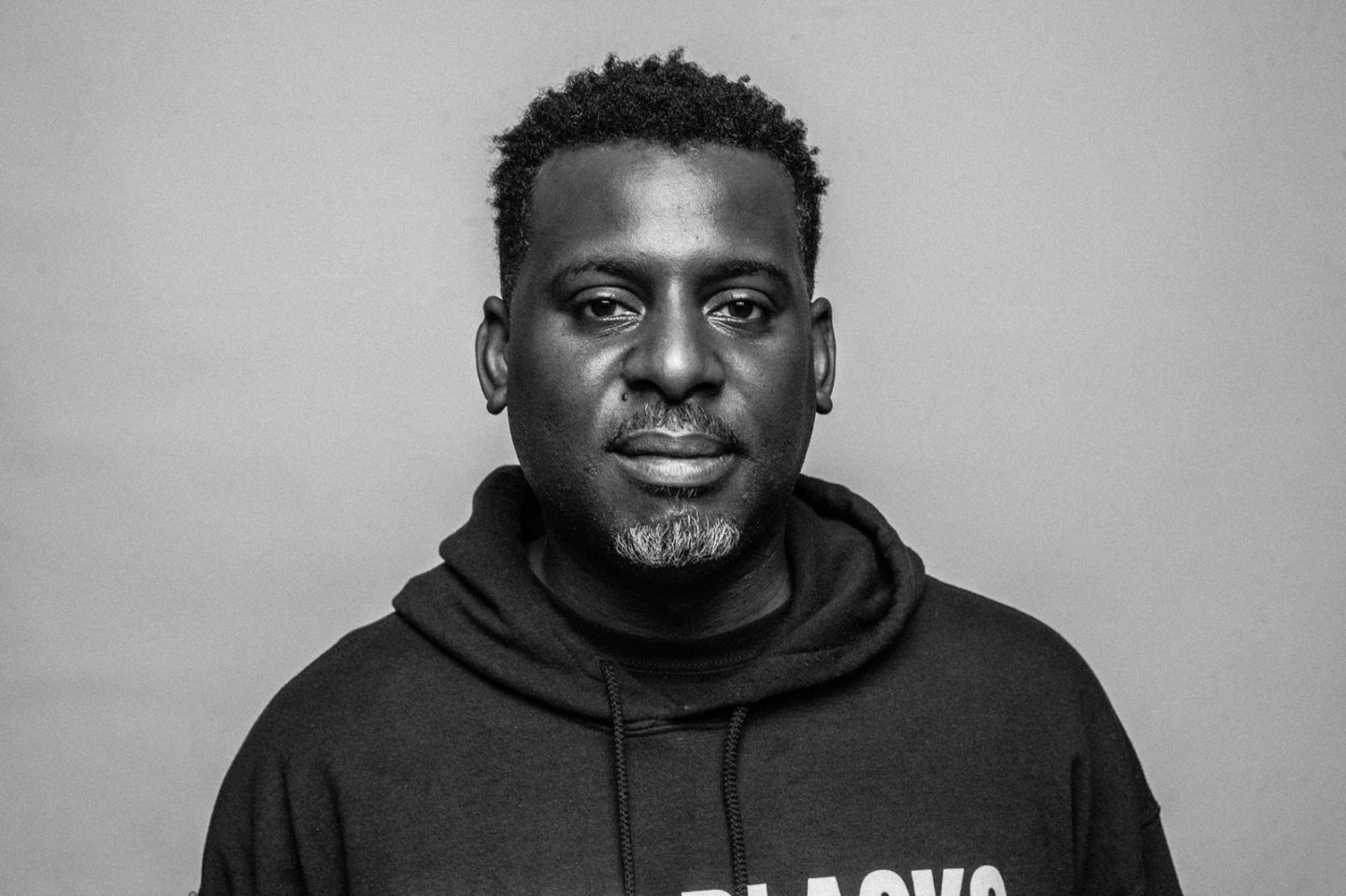
The book launches today (1 April, 2021) and has there ever been a better time for such a title? The impact of COVID-19 has highlighted and exacerbated inequalities faced by families, youngsters are at the forefront of speaking up about the climate crisis and the subject of race and ethnicity is very high in the news agenda.
Stuart and his family have been at the forefront of public discourse about race for many years. If you haven’t gathered by his surname, Stuart is the the younger brother of Stephen Lawrence, the young man killed in a racially motivated attack in 1993, a crime for which two suspects were eventually jailed in 2012 after all sorts of legal wrangles.
As Stuart outlines in the interview below, that high-profile event changed his life path. He went on to work as a teacher, he worked in the prison service and as a youth engagement specialist. This is where the book comes in.
To give it its full title, the book is called Silence is Not an Option – Stand Up, Speak Out, Be the Difference. In 10 chapters (plus an inspiring introduction), Stuart provides advice to youngsters based on his own experiences. He offers them confidence building tips, making clear they are in control and responsible for what happens in their lives, encouraging them to dream big and to treat education as a lifelong process. It’s written in very accessible language that will appeal to young people.
The fifth chapter is one of my favourites: It’s not failure, it’s unfinished business. I think us parents can be dreadful at projecting our fears on to our children (dare I say it, especially to girls). We make children afraid of failure, instead of teaching them how to embrace it, deal with it, learn from it and move on.
I’m presently reading the book with my eldest daughter. Expect a more detailed review of it in a few weeks time. In the meantime, here’s what Stuart had to say about the book and his work.
Stuart, can you please introduce yourself and your work?
“Hi. I’m Stuart Lawrence. I’m a motivational speaker and youth engagement specialist. In 1993, my big brother, Stephen Lawrence, was tragically murdered in a racially motivated attack. Since his death, my parents have tirelessly campaigned for justice, which has led to changes of attitude towards racism within British society. Silence is Not an Option is my first book – aimed at young people as they grow up, make decisions, and start to navigate their way through life.”
You have had a fascinating professional life, taking in time as a teacher and working at the Home Office plus working at HMP Belmarsh. This varied background must have put you in a good position to work as a diversity and youth engagement specialist?
“Yes, my previous experience has definitely helped me along the way. I’d say working as a teacher has been particularly helpful in terms of understanding young people, how they think and what they respond to.”
You’ve just published a book called Silence is Not an Option. Can you please explain what it’s about?
“Silence is Not an Option is about empowering young people to be confident and to understand that their individuality is something to be celebrated. It’s also about making them understand the consequences of their actions and that speaking up for individuals has far more impact than alienation or discrimination. The book is aimed at young people (around 10+) but it could be read at any age.”
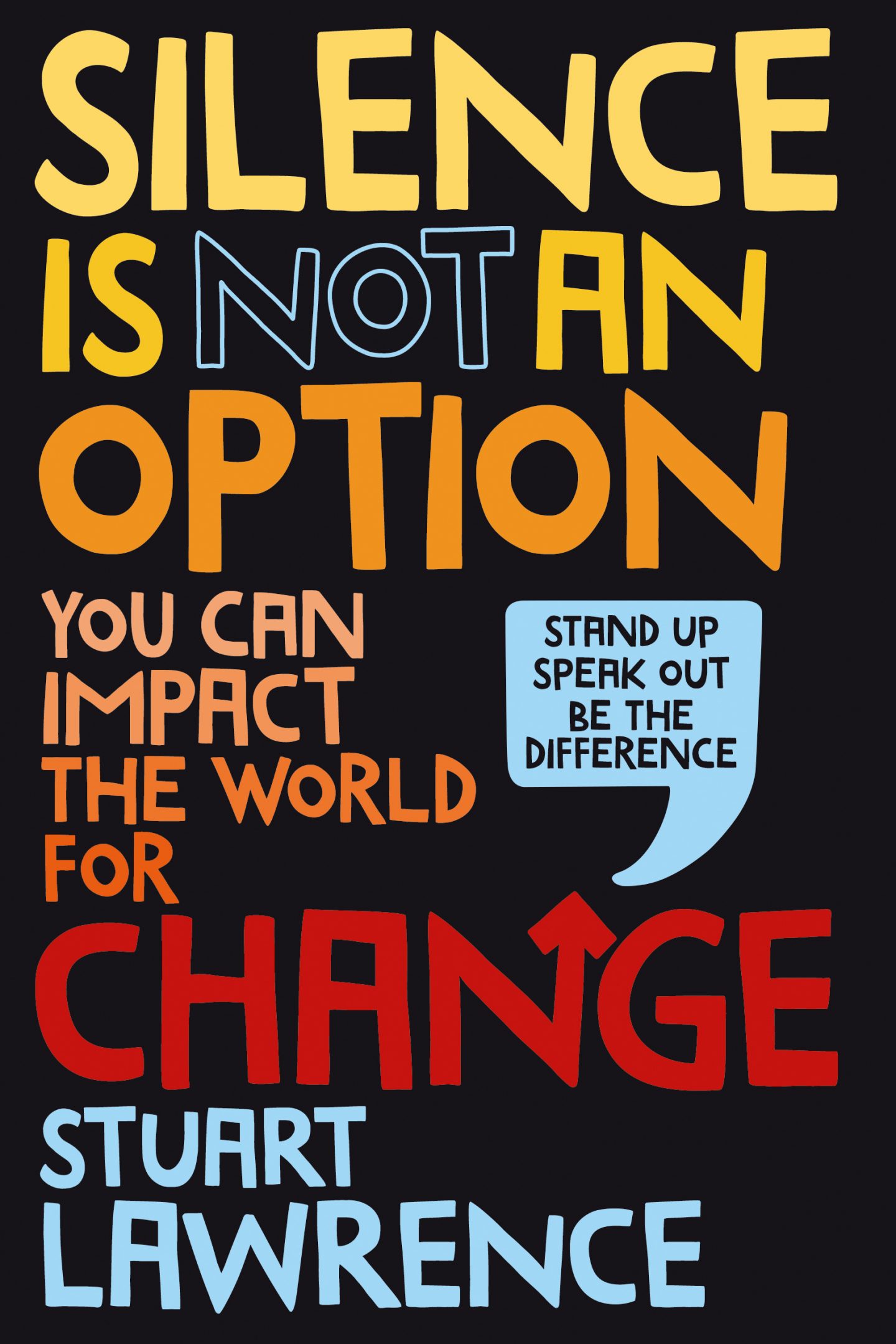
One of the book’s aims is to promote inclusion and tolerance. Does it have a particular focus on race or does it consider religion, disability, sexuality and so on?
“The book aims to give young people the tools to be able to speak up for others and to understand everyone is different: Be it race, religion and so on. The fundamental point is that people are people. We are human beings first and everyone should be valued as such. That’s my greatest hope. That our young people can learn to respect themselves and everyone around them.
Silence is Not An Option also encourages youngsters to think about the consequences of their actions. Can you expand on that? Is it about getting youngsters to ensure they always think in an inclusive way, or is it about encouraging them to make the best of their lives?
“I remember as a child my parents used to say to me “It’s OK to make mistakes. It’s OK to do things wrong but when you make a mistake you have to own up to it and put it right”. It’s so important that our young people learn to take ownership of their actions and are able to change their behaviour accordingly. As a parent, it’s your responsibility to teach your children about consequences so they understand why certain behaviours are inappropriate and how they can be better going forward.”
What would be the top three things you think parents should keep in mind when discussing diversity and inclusion with their children?
“I think the main point that parents should try and get across to their children is that is that we should try and value and appreciate everyone regardless of our differences. The world would be a very boring place if we all did the same things. Life is a beautiful and varied tapestry and we should celebrate difference in all its forms. Especially as we might have the opportunity to learn new things or discover new interests that we wouldn’t have been exposed to previously. It’s so important that young people experience other cultures and understand about cultural differences.”
It’s almost thirty years since your brother, Stephen, was murdered. What impact would you say that his murder had on you as an individual? It must have had an impact on you growing up?
“It had a massive impact on me growing up as it changed my life trajectory. Everything changed and it’s difficult for me to say how it would have been otherwise. I certainly feel I went from having my life mapped out for me to feeling the desire to push for change.
“For myself and my family, it was incredibly tough to grieve under the public gaze and that’s why I think it’s taken me until the last few years to be able to stop and think about how these things have affected me. Writing Silence is Not an Option was a somewhat cathartic process and I hope that those who read it will learn from some of the life lessons I’ve experienced when times have been tough.”
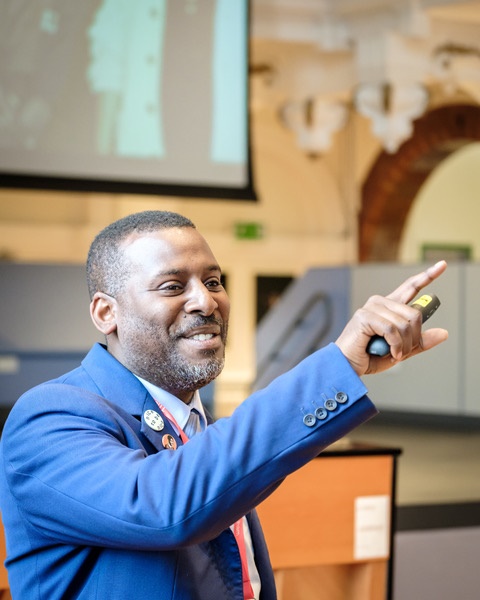
Race has been a very newsworthy topic over the past year. Do you feel we are going backwards in terms of race relations, or is the fact there is more public debate about the issue a good sign?
“It’s a positive sign. These conversations have been going on for years and yet now we’re starting to see progress. These conversations are opening up on public forums; there’s debates on TV etc. It’s at the forefront of conversation. For me though, conversations are one thing, what we now need is to make sure that things are changing. That we’re not just talking but actively putting wheels in motion to make change happen. It’s imperative that when people overstep the line there are meaningful consequences so that everyone know that those things are unacceptable.”
Thinking about the challenges facing young people at the moment, what do you think the biggest issues are, especially in light of COVID-19?
“I think one of the main issues that has been highlighted in the last year has been the social and economic disparities. The pandemic has highlighted these more than ever before. For example the quality of education being delivered for different children across the country. Sadly, it always comes down to money. No child is responsible for their economic situation and yet those will always be the people who are most affected.
“We’re a first world country and we need to do better. We need to find ways to provide better resources. One of my main aims, is to help these young people with their mental health. The last year will have had a massive impact on so many of them and we all need to be mindful of that.”
Where can people find out more about your work?
“Please follow the journey, Follow the hashtag #SilenceIsNotAnOption. You’ll also find me on Instagram @hon_stuartlawrence and Twitter at @sal2nd”
Silence is Not An Option by Stuart Lawrence is published by Scholastic and has a cover price of £14.99. It’s on general release so available from all good book retailers.

